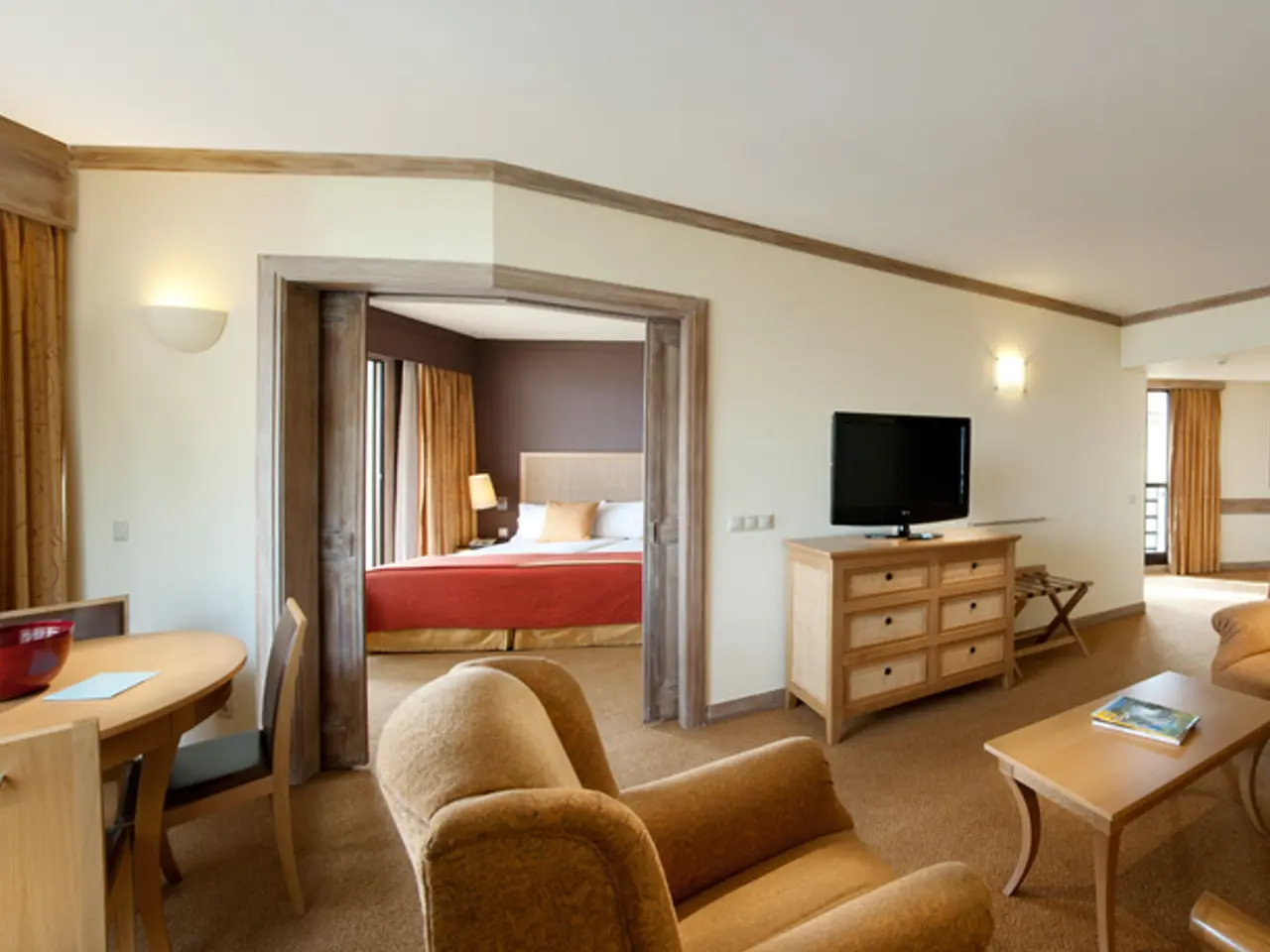Earn Income through Home Sitting Services
=====================================================================
For those seeking a unique opportunity to travel and care for homes and pets, house sitting could be the perfect fit. Here's a step-by-step guide to becoming a self-employed house sitter and pet minder.
Gaining Relevant Skills and Experience
While formal experience isn't always necessary, having experience in pet care, housekeeping, babysitting, or previous house sitting can strengthen your case. Essential skills for a house sitter include reliability, attention to detail, basic knowledge of animal behavior, problem-solving, communication, and empathy for animals.
Establishing Your Business Structure
Decide whether to operate as a sole proprietor or form an LLC. This choice affects your tax filing and liability. As a self-employed individual, you will need to report your income to the IRS and pay self-employment tax if your earnings exceed $400 annually.
Obtaining Necessary Insurance and Bonding
Insurance is vital as you work with live animals and people's homes. This generally includes general liability insurance to protect against injury or damage and possibly workers’ compensation if you hire staff. Getting bonded helps assure clients against dishonest acts and may be required for business permits.
Creating a Service Agreement
Develop a clear contract outlining your services, fees, responsibilities, and limitations. This protects you and informs clients about the scope of your work.
Tax Planning and Reporting
As a self-employed pet minder and house sitter, you must file a personal tax return using Form 1040 with Schedule C to report your income and expenses annually, typically by April 15. Keep track of deductible expenses, including pet care supplies, insurance, business-related travel, and marketing costs.
Marketing and Client Building
Build trust and credibility by offering references, professional certifications if possible, and joining industry organizations like Pet Sitters International. Good communication and professionalism are essential to gaining clients.
Legal and Licensing Considerations
Check local regulations for any required business licenses or permits. Compliance varies by state and locality but is necessary to operate legally and protect yourself.
Advertising Your Services
If becoming self-employed as a home sitter and pet minder, one should advertise services to potential clients. Agencies like Trustedhousesitters are reputable options for house and pet sitting.
Earnings as a Self-Employed House Sitter
A self-employed home sitter can make £50 a day or more, depending on the number of pets and size of the house. Agencies may pay short-term house sitters between £8 and £10 an hour.
Responsibilities and Expectations
House sitting involves living in someone's home while they're away, keeping things clean and tidy, possibly looking after a pet, and deterring burglars. House minding involves keeping an eye on an empty home with daily visits to water plants, pick up post, and have a quick tidy. House sitters aren't expected to work all day, usually duties require a couple of hours, and the rest of the time is the sitter's own. House minding helps deter burglars through movement in the house and can be used by homeowners who have cats but not dogs.
Working Independently
If working independently, homeowners should provide a written contract with instructions for specific situations. House owners should inform their insurance company about the house sitting arrangement. A deposit may be requested, and utilities might need to be paid for. If agreed upon, a partner may accompany a house sitter during the assignment.
In summary, becoming a self-employed house sitter and pet minder involves gaining skills and experience, establishing a legal business structure, securing insurance and bonding, utilizing contracts, managing taxes properly, and building client trust through good service and marketing.
- To build a well-rounded business, a self-employed house sitter and pet minder might also offer services related to lifestyle, such as providing recommendations for fashion-and-beauty or home-and-garden products that are pet-friendly and can help enhance the home environment.
- During travel assignments, a house sitter could document their culinary experiences and share interesting food-and-drink recipes inspired by their travels, adding another dimension to their lifestyle services for clients.





